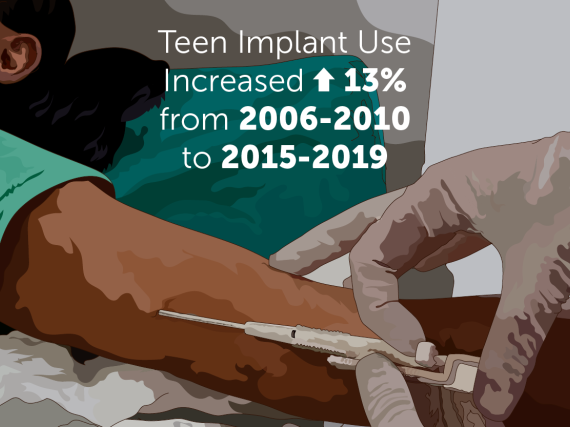How to Make a Difference
We regularly celebrate the special relationship parents and champions have with the young people in their lives and encourage opening conversations about sex, love, relationships, and life in general. But did you know that plenty of research shows that talking to teens positively impacts their growth?
Of course, growing up means having new experiences and being exposed to plenty of different situations, some of which will inevitably lead to questions. But being a trusted adult in your teen’s life begins before those questions are asked. Strong communication is key to positively influencing every aspect of teens’ lives from mental health to physical health and from performance in school to friendships. Young people need space to develop independence, but because they can make impulsive decisions, without some guidance from trusted adults they may take unnecessary risks. It can be hard, but research shows it’s crucial to give young people room to explore while letting them know that you’ll always be there as a safety net.
We talk a lot about unexpected places to have conversations, but not every moment is an opportunity to talk. Sometimes it’s ok for a hike to be a hike or a trip to the grocery store to just cover what’s on this week’s shopping list. Not asking intrusive questions or dropping heavy hints that it’s time for a deep conversation every time you leave the house will go a long way to showing your young person that they can trust you to be a safe space.
Similarly, not every conversation needs to have an end goal. Research tells us that helping young people find a purpose is linked to better well-being and a reduced likelihood of experiencing depression. However, as we know from our own lives, purpose isn’t something that can be discovered with a pros and cons list or by following directions. Instead, look for opportunities to share your own purpose. Talking about both the highs and lows of your journey demonstrates that you won’t judge them when they’re ready to share their own feelings—positive or negative. Studies have shown that simply talking about emotions is also linked to less depression. If your young person talks to you, listen and empathize without necessarily trying to solve their problems.
When it is time to open a conversation about sex, love, birth control, and reproductive well-being be aware of your surroundings and the signs (verbal or non-verbal) your teen is putting out. Don’t push to resolve everything in one big, sit-down talk, and if your young person doesn’t want to talk when you do don’t try to guess why or push them. Instead, stay open to talking whenever they are ready.
More than half of young people age 12 to 15 say that their parents most influenced their decisions about sex. That means your conversations about love, relationships, sex, and contraception will be an important point of reference by which your teen will judge all other information. While talking about sex is shown to delay first sexual experience, don’t forget to cover more than the health and safety elements. Talk about the emotional aspects of sex and love too.
If you’ve fostered a healthy and trusting relationship with your young person, they should feel more comfortable sharing with you and bringing their questions to you. Remember, just because a teen has questions about sex or birth control doesn’t mean they’re sexually active. It could be just curiosity, something they saw on social media or TV, or something they heard about at school. So do your best to control potentially negative reactions. Take a minute if you need it before responding. Ask clarifying questions if you don’t fully understand. Don’t be afraid to admit that you don’t know something and need to do your own research.
Finally, a growing body of research suggests that nearly 50% of young people talk with extended family members like siblings, aunts, uncles, or cousins about sex. In fact, the conversations that teens have with people who aren’t their parents are more likely to cover issues beyond STI prevention and birth control. So don’t feel like you need to be the end all be all for your young person. Every parent and champion in a teen’s life who is willing to open communication is an opportunity to make a big difference.
Start early and stay late! Start talking today!



